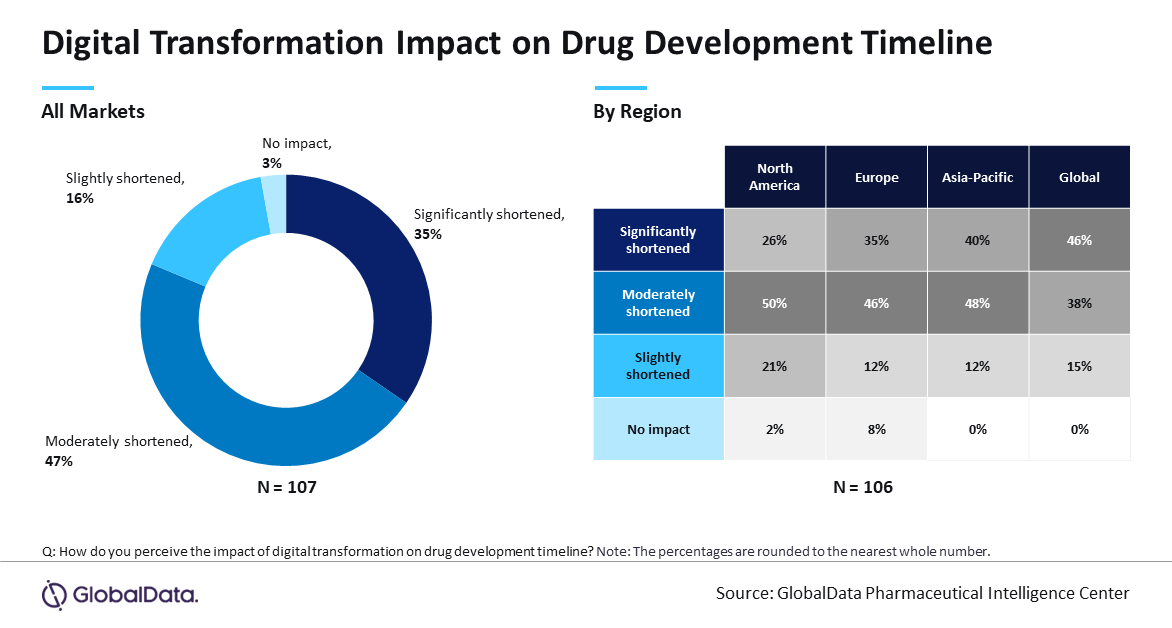Ever increasing drug discovery and development timelines is a multiscale issue causing delays in patient access to medicines and increasing costs for pharmaceutical companies. Digital transformation could streamline the process, accelerate innovation, and improve efficiency, according to a survey conducted by GlobalData, a leading data and analytics company.
RELATED: Briefly Bio lands funding for AI to help scientists reproduce complex experiments
In a recent GlobalData’s survey, “Digital Transformation and Emerging Technologies in the Healthcare Industry – 2024”, 82% of surveyed pharmaceutical industry professionals indicated that the drug development timeline could be either significantly or moderately shortened with the help of digital transformation.

Urte Jakimaviciute, Senior Director of Market Research and Strategic Intelligence at GlobalData, comments: “Survey findings highlight that the growing recognition within the pharmaceutical industry that technology, particularly, artificial intelligence (AI), is accelerating innovation and efficiency in the drug discovery and development process, enabling processes such as faster identification of potential drug candidates and optimization clinical trials processes.”
AI and machine learning in drug discovery and development
For example, in February 2020, BenevolentAI, a company specializing in application of AI and machine learning in drug discovery and development, used its AI drug discovery platform to identify approved drugs that could potentially be used against COVID-19 infection, facilitating faster repurposing of existing drugs. It identified baricitinib, an already approved drug developed by Eli Lilly and Incyte for the treatment of rheumatoid arthritis, as a potential COVID-19 treatment, much faster than traditional methods would.
According to GlobalData’s Drugs database, currently there are over 3,000 drugs that have been developed or repurposed using AI, with a majority of them in early stages of development—either discovery or preclinical.
Jakimaviciute concludes: “The fact that most AI-driven drugs are in early stages suggests that more companies are increasingly turning to AI to explore and expand their drug pipelines. This trend also reflects the industry’s growing reliance on AI to enhance R&D productivity. As the industry continues to recognize the potential of AI, this technology is set to become even more essential.”
* GlobalData’s survey fielded with 109 pharmaceutical industry professionals from August 15, 2024, to October 11, 2024.

































